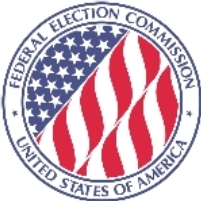“Pop-Up” Campaign Finance Groups Dance Rings Around the IRS and FEC
Monday, August 06, 2012

“Justice delayed is justice denied.” This legal maxim describes the fundamental legal principle that when the legal system moves too slowly its remedies can become meaningless and people’s rights will suffer. “Pop-up” groups that falsely claim to be charities in order to avoid political donor disclosure rules are a good example. They spend millions engaging in partisan politics and then disband—all before slow-moving bureaucracies can take action. The losers are voters, who are left in the dark as to who is actually funding the often-misleading political ads paid for by these shadowy groups.
Perhaps the most egregious example is a group called the Commission on Hope, Growth and Opportunity (CHGO), which was founded in March 2010, just a few months after the Supreme Court’s Citizens United decision. In July, it asked the Internal Revenue Service (IRS) to grant it 501(c)(4) tax-exempt status as a charitable organization, and submitted sworn documents that it would not spend any money on politics—a legal requirement in order to get charitable status and avoid disclosing its donors.
Only two weeks after the IRS approved CHGO’s application, the group announced its true intentions: to spend millions of dollars to defeat 11 House Democrats running for reelection, 10 of whom ultimately lost. CHGO raised $4.8 million—$4 million from one anonymous donor—and spent $2.3 million on TV ads. Had the group honestly stated its purpose from the get-go, it would have had to disclose the names of its donors.
CHGO’s campaign of deception did not end with the 2010 elections, for on its 2010 and 2011 tax returns, the group claimed it hadn’t spent money on politics. Although watchdog groups filed complaints against CHGO alleging it had violated tax and election laws, in 2011 CHGO quietly disbanded. Two years later, neither CHGO, nor the shadowy individuals behind it, have faced any punishment. Voters still do not know who paid for its attack ads, and perhaps never will.
The problem, according to legal experts, is that both the IRS, which has jurisdiction over tax issues, and the Federal Election Commission (FEC), which has authority over campaign finance, move too slowly. The IRS is simply not designed to move quickly, as speed is not essential to its core missions of collecting tax revenues and investigating those who may be violating tax laws. The FEC is supposed to act quickly in order to protect the integrity of elections, but it has been hopelessly politically deadlocked for several years. The FEC’s three Republican members have declared their ideological opposition to much of the campaign finance law, and have ground the FEC’s work to a halt on the most important issues. “The FEC is now thoroughly broken, and when it comes to enforcement of the campaign finance law, we don’t have any,” said Craig Holman, a lobbyist with the ethics group Public Citizen.
For the 2012 election campaigns, voters can expect the situation to be even worse than two years ago. Emboldened by the Citizens United decision, corporations and the rich are pouring money into Super-PACs and pop-up “charities” like CHGO, hoping to anonymously sway elections and then slink back into the shadows. Ironically, the Supreme Court in Citizens United said that donor disclosure rules would mitigate possible abuses and ensure justice was done, yet the delays in enforcing those rules have rendered that promise hollow.
-Matt Bewig
Tax-Exempt Group’s Election Activity Highlights Limits of Campaign Finance Rules (by Jonathan Weisman, New York Times)
IRS: Toothless. FEC: “Thoroughly Broken” (by Andy Kroll, Mother Jones)
Commission on Hope, Growth, and Opportunity (FactCheck.org)
CREW Files IRS and FEC Complaints Against Commission on Hope, Growth and Opportunity (Citizens for Responsibility and Ethics in Washington)
- Top Stories
- Unusual News
- Where is the Money Going?
- Controversies
- U.S. and the World
- Appointments and Resignations
- Latest News
- Donald Trump Has a Mental Health Problem and It Has a Name
- Trump Goes on Renaming Frenzy
- Trump Deports JD Vance and His Wife
- Trump Offers to Return Alaska to Russia
- Musk and Trump Fire Members of Congress






Comments